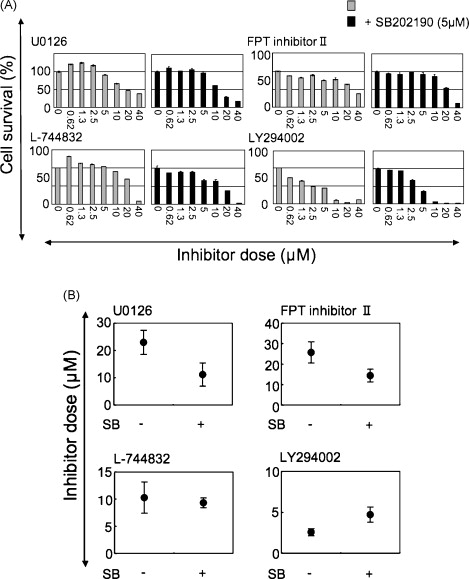This study by Hirosawa et al. investigates the effect of the p38 MAPK inhibitor SB202190 on acute myeloid leukemia (AML) cells. While p38 signaling is typically associated with stress responses and growth inhibition, treatment of AML cell lines (especially THP-1) with SB202190 unexpectedly enhanced cell proliferation. To uncover the mechanisms driving this growth, they tested how SB202190 altered cellular sensitivity (ED₅₀) to various pathway inhibitors.
They found that SB202190 significantly reduced the ED₅₀ of MEK (U0126) and Ras (FPT inhibitor II) inhibitors, indicating activation of the MEK–ERK pathway, while increasing the ED₅₀ of a PI3K–Akt inhibitor, suggesting suppression of the Akt pathway. These observations were confirmed via Western blotting: ERK phosphorylation was upregulated across multiple AML cell lines within 15 minutes of SB202190 treatment, whereas Akt phosphorylation was reduced more slowly. This early activation of ERK was also associated with increased phosphorylation of C-Raf, an upstream kinase in the MEK–ERK cascade.
The findings reveal that inhibition of p38 by SB202190 triggers compensatory activation of the Raf–MEK–ERK pathway, driving leukemia cell proliferation. Importantly, ERK activation was absent in RS4-11 cells, which were unresponsive to SB202190, confirming the central role of ERK in mediating this effect.
This study highlights the complexity of signaling pathway crosstalk in cancer cells and cautions that targeting one pathway (p38) may activate others (ERK), potentially promoting malignancy. Understanding these interactions is crucial for the rational design of targeted therapies in AML.
Continue your reading here:

